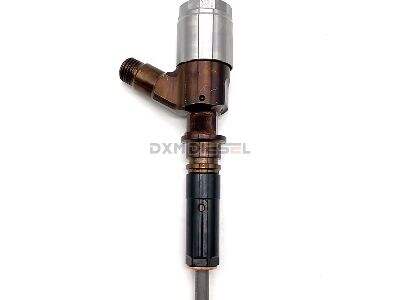Since pumps are absolutely essential for transferring water and other liquids their importance to such functions in waterworks and industry cannot be overstated. They are used in a variety of situations including homes factories and farms. But like any other machine pumps can fail as well. As a pump owner or driver you need to know how to care for your pump. Now there will be some signs that will inform you that your pump is asked for help. Common symptoms include leaks unusual noises and the pump not functioning properly (not performing as well as it once was). If you notice these signs you should check your pump. Catching issues early can help you to avoid bigger problems down the road which could save you time and money.
Signs Your Pump Needs Help
Leaks: One of the earliest signs that your pump could be failing is water or oil present on the floor beneath your pump. This hypothetically suggests that there is a leak somewhere in the system. The pump can also leak if any of the parts are worn or damaged such as seals or gaskets. You have to do that quickly to protect your Heui Cat Injector Pump Parts and protect for the damage more. If you don’t fix it promptly a leak can lead to bigger problems down the road.
Unusual Sounds: Pump will start making unusual sounds another sign to look for. You’ll also hear squeaking grinding or banging sounds. Such a sound could mean that there’s an issue inside the pump. Existing bearings can be worn or some parts can be damaged for example. If you hear any of these noises definitely get a pro to check it out. Getting it looked at early can help catch any issues before they get much worse.
Insufficient performance: If your pump is not performing like it once did that is another sign of trouble. You may notice it's not moving water as fast or as well as it used to. The performance can change because parts wear out filters get blocked and there can be air leaks. It’s advisable to let a professional take a look at it know what the problem is. Your pump must operate effectively and handling performance issues will ensure that it continues to function as intended.
How to Spot Problems?
A US pump is something that you want to keep operating smoothly which also means regularly examining your pump and monitoring the signs of trouble. Here’re some other useful way to identify problems:
Check It for Damage: Checking your pump is one of the simplest methods of determining if you have an issue. If it is drier check for traces of leaks cracks or wear on the parts. Look specifically at seals gaskets and pipes for damage. Moreover search for the presence of rust on metal parts as this would mean the pump is not functioning properly. Check the impeller which the part that moves the liquid and see if it has cracks or damage.
Pump Performance Check: You should also keep your eye on how well your pump works. Which you need to check: Water Flow and Temperature pressure. If for some reason something changes so maybe the water flow through there drops or the temperature increases well that could mean there’s an issue. Tracking down pump performance can help identify issues more readily.
Red Flags to Remember
Here are some key indicators or "red flags" indicate that your pump may require parts replacement:
No Start: One potentially big problem can be that your pump does not start when you want it to. This could indicate a problem with the motor impeller or electrical components. In these cases it is extremely important to have a professional come out the inspect terror as they will know how to repair all of these issues. If you have Diesel Injector And Pump Parts that refuses to start and entering a stall turned on but operating in the next stall can cause bigger problems.
Vibrating: If your pump is vibrating or shaking excessively it can be another sign that there's a problem with your pump. High amounts of vibration can indicate a balance a issue with bearings or impeller. Too much shaking unchecked can harm the system over time.
Overheating: This is a serious problem if you pump too hot. Overheating can indicate there is a problem with the motor or the impeller. It puts the system at risk of damage if your pump overheats so it needs immediate attention.
Taking Care of Your Pump
Be wary not to miss the signals that your pump is failing. Follow these guidelines for help in ensuring your pump continues to be in great shape and working properly:
Regular Check-ups - This is Scheduling times to check your pump. Thanks to this procedure of scheduled care, we can discover problems in advance before it becomes critical to the health.
Favorable: Clean Filters - Clean with some regularity so water flows freely through Clean Filters. Meaning that you will clean up the filter every now and then. The entire filters ought to be maintained over time, and this can help in your pump's working.
Oil lubricating parts: Apply oil and/or grease to the moving parts (if movable) to make them function smoothly.
Maintenance of your pump is vital. By keeping an eye out for the signs that your Injector Pump Test Bench And Tools is struggling you can keep yours going strong. Keep an eye on symptoms including leaks unusual sounds and performance changes. If you get problems early by checking your pump regularly you can prevent them from escalating. Keep that in mind when you notice other things that seem questionable. In this way your pump will remain in a good condition and will keep doing its job.
 EN
EN
 AR
AR
 PT
PT
 RU
RU
 ES
ES
 ID
ID
 TH
TH
 MS
MS



